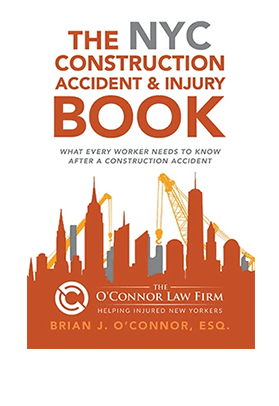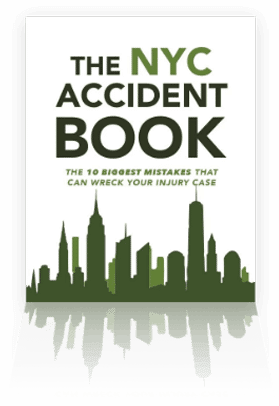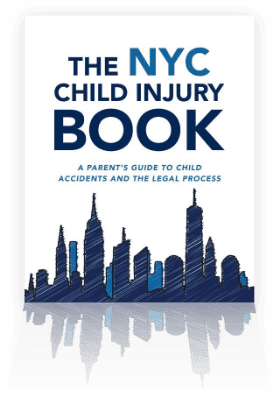New York Dog Bite Lawyer
If you or your child have been the victim of a dog bite, you may be able to hold the dog’s owner liable for your injuries, including medical bills, pain and suffering and other damages. Call a New York City dog bite lawyer at The O’Connor Law Firm today to understand your legal options.
We will answer your questions and help you through the legal process. We offer free consultations with no obligation. Call us at 718-948-3500 or fill out our contact form to schedule a free case evaluation today.
New York Dog Bite Facts
According to the Humane Society of the United States and the CDC, approximately 4.7 million dog bites occur each year with more than 800,000 dog bites requiring medical attention. According to the American Veterinarian Medical Association (AVMA) half of those who seek medical treatment are children, most of them are between the ages of 5 and 9.
It is estimated that New York City is home to approximately 600,000 dogs. According to the New York City Department of Health, there are more than 3,500 dog bites reported annually in New York City with hundreds of additional dog bite incidents that go unreported.
Contrary to popular myth, there is no such thing as a child-friendly dog breed. Although some breeds may be more suitable for children, a dog’s propensity to bite is dependent on many factors, such as its inherited traits, environment, training and socialization. Studies have shown that the most positive influence on a dog’s comfort around children is positive interaction with children when the dog is a young puppy.
Breaking Down New York’s Dog Bite Law
New York’s dog bite law holds a dog owner strictly liable for medical expenses but only if the dog has been adjudicated as a “dangerous dog.” For additional damages, including pain and suffering, a dog bite victim must prove that the dog is “vicious” and that the owner knew or should have known about the dog’s “vicious propensities.” A victim will not be able to prove his case unless there is some evidence that the dog exhibited some type of aggressive behavior toward others in the past.
What is a “Dangerous Dog”?
According to New York’s Agriculture and Markets Law §121, the owner of a “dangerous dog” is strictly liable for medical costs resulting from an injury caused by such a dog to a person or other animal. Under certain circumstances, the owner of a “dangerous dog” may also be required to pay a fine or face other criminal penalties.
A “dangerous dog” is defined as a dog that, without justification either:
- Attacks and injures or kills a person or animal; or
- Behaves in a manner which a reasonable person would believe poses a serious and unjustified imminent threat of serious physical harm or death to a person or animal.
A dog shall not be declared “dangerous” if the court determines the conduct of the dog was justified because:
- The person injured was committing a crime upon the dog’s owner or the owner’s property at the time of the attack; or
- The person injured was abusing or physically threatening the dog or its puppies or has previously done so; or
- The dog was responding to pain or injury or was protecting itself or a member if its household.
- Police dogs are exempt from “dangerous dog” status while being used in operations.
A dog is only declared “dangerous” after a formal proceeding is held by a judge. A complaint must first be filed with the police or animal control by anyone who witnesses an attack or threatened attack upon a person or animal.
What Is The “One Bite” Rule?
The origin of the “One Bite” Rule (sometimes referred to as the “One Free Bite” Rule) comes from old English law whereby owners were not held responsible for the acts of their domestic animals until they bit someone first. From that point forward, the animal’s owner would be held legally responsible for the actions of their animals.
New York’s Dog Bite Law is a modified version of the “one bite” rule. The truth is that dogs do not always get “one free bite.” In order to recover damages for personal injuries, including pain and suffering, and lost earnings, a dog bite victim must establish:
- that the dog had “vicious propensities” prior to the attack, and
- the owner knew or should have known about the dog’s “vicious propensities.”
In other words, victims will not be able to prove their cases unless there is some evidence that the dog exhibited some type of aggressive behavior toward others in the past. This is New York’s version of the “one-bite rule.” This term is not really accurate in New York as a dog can still be found to have “vicious propensities” without actually biting anyone previously. Likewise, it is also possible that an owner will not be responsible for the actions of a dog if the previous bite was “justified” under the law.
How Do I Prove A Dog Has “Vicious Propensities?”
Factors to be considered in determining whether an owner has knowledge of a dog’s “vicious propensities” include evidence of:
- Prior attacks of a similar kind
- The dog’s tendency to growl, snap or bare its teeth
- Prior complaints
- The manner of the dog’s restraint
- Whether the animal is kept as a guard dog
- Proclivity to act in a way that puts others at risk of harm
- Presence of a “Beware of Dog” sign is not enough by itself to prove a dog owner was aware of “vicious propensities.”
Can a New York City Dog Bite Lawyer File a Claim for Injuries If A Dog Jumped On Me?
Evidence that a dog owner was aware of a dog’s “proclivity” to enthusiastically jump on visitors will be enough to make a dog owner liable for injuries caused by such activity.
While we may consider this activity “playful” and not “vicious” the law recognizes this activity as an act “that puts others at risk of harm” and is therefore included as a factor in determining whether a dog has “vicious propensities.”
An owner will be held liable if it is proven that he knew or should have known of such proclivity to jump on visitors.
Can a New York Landlord Be Held Responsible For A Dog Bite?
A landlord can be found liable for injuries caused by a tenant’s dog under a theory of strict liability by demonstrating that the landlord:
(1) had notice that a dog was being harbored on the premises; and
(2) knew that the dog had vicious propensities, and
(3) had sufficient control of the premises to allow the landlord to remove or confine the dog.
What Should I Do After A Dog Bite?
If you or your child have suffered injuries as a result of a dog attack you may be unsure of what to do next. Here are a few steps that you can take to help your case before calling a New York dog bite attorney:
- Get the name and contact information of the dog owner
- Obtain contact information of any witnesses to the incident
- Take pictures of the dog and your injuries if possible or have someone take pictures for you
- Seek medical attention
- Contact the police department or animal control to report the incident
Tips for Preventing Dog Bites in Children
If you plan to have young children and a dog, try to adopt the dog while it is young and introduce it to the children during the toddler age. However, dogs need to be introduced to children of all ages. Young toddlers will act differently around the dog than will a 10-year-old child. Children should be involved with the training sessions of the dog. Why? Because it is important for the dog to experience the child as an authoritative figure, thus decreasing the chances that the dog will bite the child. Children should also be involved in other caretaking activities, like feeding, grooming, and bathing the dog.

Parents should never leave young children alone with a dog, particularly if the dog has limited experience with that child. You can teach children to recognize fearful or aggressive behavior in a dog so they can take steps to avoid or minimize the risk of a bite. Young children especially tend to emulate their parents’ behavior, including their interaction with the dog, so if you want to raise dog-friendly children, start early to set good examples of how to treat the dog.
Here are some additional tips for avoiding dog bites:
- Do not disturb a dog while it is sleeping, eating or playing with a toy
- Always supervise children when they are playing with a dog
- Do not approach or pet an unfamiliar dog without the owner’s consent
- Do not make any sudden movements or run if approached by an unfamiliar dog
- Teach children how to properly deal with unfamiliar dogs
How Can A New York City Dog Bite Attorney Help Me?
If you or your child have been the victim of a dog attack, you may feel overwhelmed and unsure of what to do next. An experienced New York dog bite attorney can explain your legal options and guide you through the legal process. At The O’Connor Law Firm, we take on the burden of dealing with the insurance company so that you can focus on your recovery. We will fight for the compensation that you deserve, including damages for the following:
- Medical expenses\
- Pain and suffering
- Scarring and disfigurement
- Emotional distress and psychological trauma
- Lost earnings
- Loss of enjoyment of life
Contact a New York City Dog Bite Lawyer Today at Our Manhattan or Staten Island Office

Dog attacks can cause both physical and emotional scars that may require extended care and treatment. Don’t let an insurance company take advantage of you by settling your case before you have reached a full recovery. An experienced New York dog bite lawyer can answer your questions and help guide you through the legal process.
At The O’Connor Law Firm, we will level the playing field by fighting for the full compensation your deserve. We will provide personalized attention to you and your family and communicate with you throughout the process. We offer free case evaluations with no obligation. Call us today at 718-948-3500 or fill our or contact form and let us help you now. Our offices are located in Manhattan and Staten Island.




